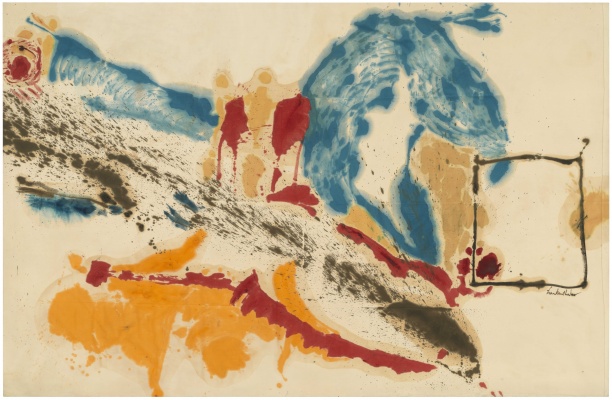Descripción de la Exposición
The Institute for Studies on Latin American Art (ISLAA) is delighted to announce the opening of Political/Subjective Maps: Anna Bella Geiger, Magali Lara, Lea Lublin, and Margarita Paksa. Curated by Cecilia Fajardo-Hill, the exhibition will bring together key works by Anna Bella Geiger (Brazilian, b. 1933), Magali Lara (Mexican, b. 1956), Lea Lublin (French Argentine, 1929–1999), and Margarita Paksa (Argentine, 1933–2020). It will explore how these four visionary conceptual artists have appropriated the visual language of maps to highlight entrenched power structures; mine social, political, emotional, and personal subjects; and imagine new ways of apprehending the world.
Maps have an extensive legacy in the history of Latin American art—from Joaquín Torres-García’s América Invertida (1943) to Juan Downey’s Map of America (1975)—and have offered productive terrain for confronting the colonialist systems underpinning international dynamics. Whereas maps are often accepted as neutral, depoliticized, and scientific, artists have emphasized their origins as constructed and symbolic representations, informed by the biased viewpoints and covert objectives of their creators. From the ancient period through the European conquests to the present day, cartography has been used to cement hierarchies, demarcate territory, and visualize power relationships through elements such as scale, positioning, and orientation.
Engaging a variety of mediums and conceptual approaches, Geiger, Lara, Lublin, and Paksa have challenged the colonialist and patriarchal perspectives embedded within map-making in their work. Geiger defies neocolonial categories in her reconceived maps, while Paksa examines histories of state violence in Uruguay and Argentina in series such as Diagramas de batallas (1970–76). In opposition to the scientific rationality of ordering systems such as charts and atlases, Lara addresses intimacy, emotion, and desire in her schematic drawings and watercolors. By contrast, Lublin constructed interactive environments such as Fluvio Subtunal (1969) that sought to generate new, liberatory ways of experiencing art.
Thematically and spatially, the exhibition is divided into two broad topics—subjectivity and politics—and moves from the interior realms of the mind and the body to the exterior domains of the public and the political. The first section explores mapping as a means for producing a collective experience in Lublin’s work and concludes with Lara’s application of cartography to depict personal subjectivity and feminine identity. The second section considers representations of geopolitical dynamics in Geiger’s work and the politics of resistance and denunciation in Paksa’s practice.
Political/Subjective Maps is accompanied by a booklet featuring an essay by Cecilia Fajardo-Hill and designed by Ramón Tejada. Physical copies will be distributed free of charge at ISLAA, and a digital version will be made available to download at islaa.org in October.
The exhibition will open with a reception on Thursday, October 13 from 5 to 8pm. Guests are asked to sign up in advance using this online form. Find out more here.
ISLAA Exhibition Talks
In conjunction with the exhibition, ISLAA will present a series of live and prerecorded talks on the work of Anna Bella Geiger, Magali Lara, Lea Lublin, and Margarita Paksa. Geiger and Lara will discuss the role of cartography in their work in two separate online conversations. Scholars Stephanie Weber and Ionit Behar will produce prerecorded lectures, published online, that situate map-making strategies within Lublin’s and Paksa’s careers. Additional details about these events and videos will be added to ISLAA’s website in November.
About ISLAA
The Institute for Studies on Latin American Art (ISLAA) advances scholarship and public engagement with art from Latin America through its program of exhibitions, publications, lectures, and partnerships with universities and art institutions.

Exposición. 11 abr de 2025 - 28 sep de 2025 / Museo Guggenheim Bilbao / Bilbao, Vizcaya, España

Formación. 08 may de 2025 - 17 may de 2025 / Museo Nacional Centro de Arte Reina Sofía (MNCARS) / Madrid, España